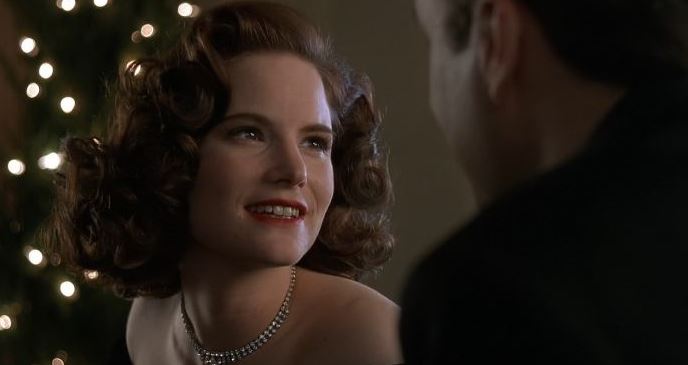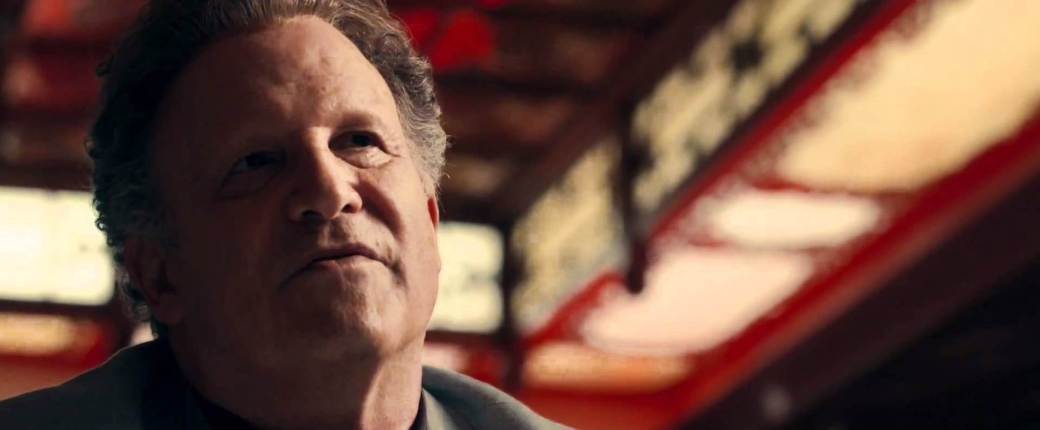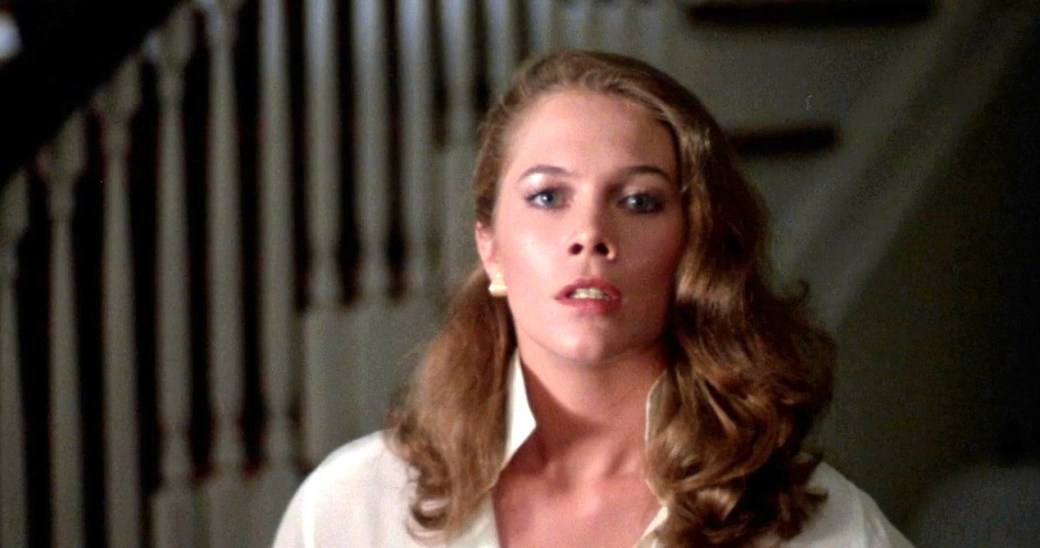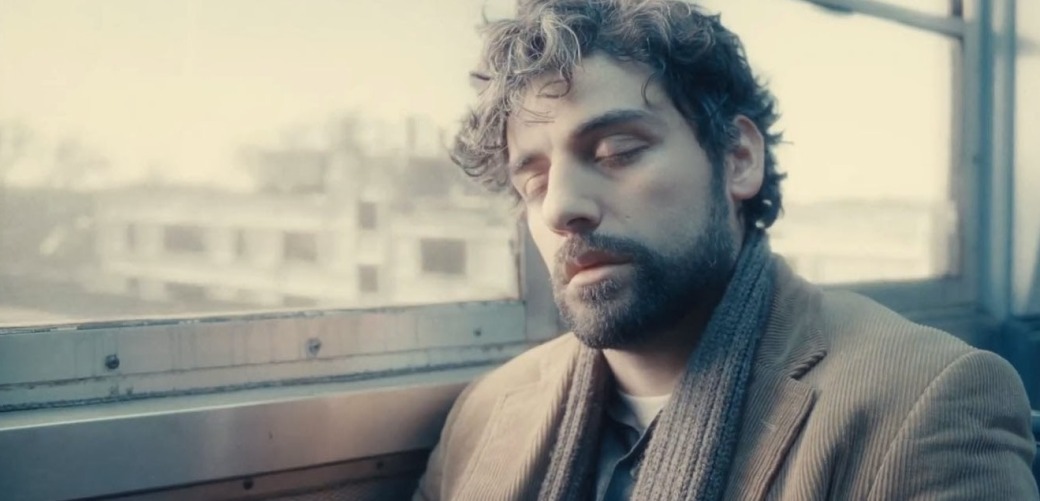RE-POST
Sorry Albert Brooks you are outnumbered here by feisty, fierce women. Go take a look at these Oscar never-weres.

Jennifer Jason Leigh for The Hudsucker Proxy (1994) – – – Robin Write @Filmotomy
Jennifer Jason Leigh has hardly been synonymous with an Oscar contender in her moderately successful film career. That reputation is misleading if you look closer. In the mid-nineties in particular she had a flourishing few years which could have resulted in succession of Academy Award mentions, with stand-out performances in the likes of Short Cuts, Georgia, Dolores Claiborne, and perhaps her most talked-up bid for a Lead Actress nomination for her fine work in Mrs Parker and the Vicious Circle. I have always relished her rat-a-tat performance in the Coen Brothers’ The Hudsucker Proxy. As ruthless, quick-talking reporter Amy Archer, Leigh pretty much pulls the rug from under the feet of Tim Robbins and Paul Newman. Eventually the super-ambitious Archer becomes the love interest, but it is Leigh’s early scenes that claim the limelight. Brilliantly imitating the kind of snappy way of talking we are accustomed to with Rosalind Russell or Katharine Hepburn, Leigh’s energy not only drives the Coen Brothers’ frenetic pace, but also highlights her own gift as an actress who can convincingly punch above her apparent weight.
Irene Papas for Iphigenia (1977) – – – Paddy Mulholland @screenonscreen
A performance of scintillating power! What a treat to behold the Greek Grand Dame of acting, Irene Papas, prove the full extent of her prowess as a performer in Michael Cacoyannis’ marvelous adaptation of Euripedes’ Iphigenia at Aulis. It’s a triumphant turn in a triumphant film from a play written by one of the all-time greats – a true display of true Greek dramatic superiority. As Clytemnestra, the desperate mother of the doomed titular character, Papas runs wild with her character’s wild emotions, but with exceptional control, rightly seeking the proper style and tone with which to make her character’s rational unreasonableness seem entirely reasonable. She storms through the role and through the film, with a performance that would have registered as outrageously overwhelming were this any other actor in any other film. But it’s not! It’s Irene Papas in Iphigenia, and it’s magnificent stuff!
Reese Witherspoon for Election (1999) – – – Joey Moser @JoeyMoser83
Everyone went to school with a Tracy Flick, and some of us were Tracy Flick. Before she landed on the Hollywood A-List, Reese Witherspoon blew everyone’s minds as one of the most ambitious high schoolers ever written. Tracy is obnoxious, pushy, and absolutely hilarious. Even though Election begins and ends with Matthew Broderick’s unraveling schoolteacher, Witherspoon unwittingly steals the rug out from under him the entire film. At this point in her career, Witherspoon lands a lot of prestige films (last year’s Wild and her Academy Award winning turn as June Carter in Walk the Line), but her Tracy Flick is her scrappiest. She could play almost anyone she wants, and I wish she would tap into the same control she does in Alexander Payne’s comedy. It might be her most physical performance; it’s almost as if Tracy purposefully wraps her lips around her teeth to escape the wrong words from coming out of her mouth. She zooms through the maze of high school with the scene of success on her nose like a mouse with cheese. High school can be a very confusing time, and teenagers change who they want to be every five minutes. Tracy Flick, however, has laser beam focus even though the adults around her have decided that she’s something entirely – one teacher views her as a plaything and Broderick thinks she must be stopped. She tells a weary Broderick early in the film, “We’re going to be spending a lot of time together.” Thank God for that.

Albert Brooks for Drive (2011) – – – Jonathan Holmes @MisterBrown_23
Much like Adam Sandler in Punch-Drunk Love or the late Robin Williams in Insomnia, the famed comedic actor playing a mob boss is not just a break from form – it’s a transformative performance that makes you look at Brooks in a new light. He’s not doing his usual shtick, even as an antagonist. He’s a straight-up brutal, cold and menacing thug who wants the money the Driver (Ryan Goseling) stole from a pawn shop in a heist gone terribly wrong, as a way to stop the East-Coast mob from killing him and talking over his turf as revenge. Watch him sit down, face to face with Driver, telling him in precise detail the only option he has, and see the void of emotion he has in his face; the coldness he has in his eyes. To be blunt: it’s fucking frightening, and the kind of acting ability I never would have thought Brooks had in him.

Kathleen Turner for Body Heat (1981) – – – Steve Schweighofer @banjoonthecrag
Lawrence Kasden’s Body Heat was the neo-noir answer to the Reagan years where everyone is on the take, outsmarting each other to get what they want and horny as hell while doing it. When Kathleen Turner appears on the big screen for the first time in her career, her catlike Matty Walker becomes the poster girl of the era. Her whiskey voice and fearless physicality wraps William Hurt, along with everyone else in the film she encounters, around her little finger during her ploy that ends in a lounge chair on a desert island. Yes – spoiler – she completely gets away with it (Reagan years, y’know). Body Heat made a major star of Turner and she did go on to get Oscar nominated ONCE while gathering a slew of Globes and critics awards for several other roles until her successful retreat to the New York stage at the end of the decade. Kathleen Turner was a meteor of a female screen icon – brilliant, but brief – so we savor what we have. Too bad Oscar missed the chance.





Recent Comments